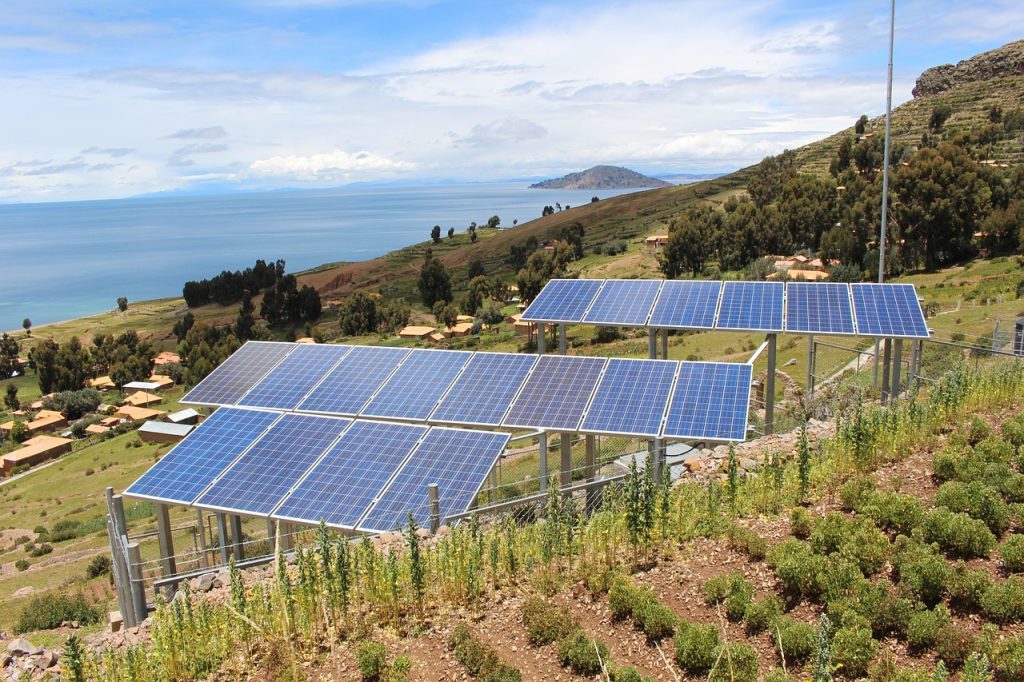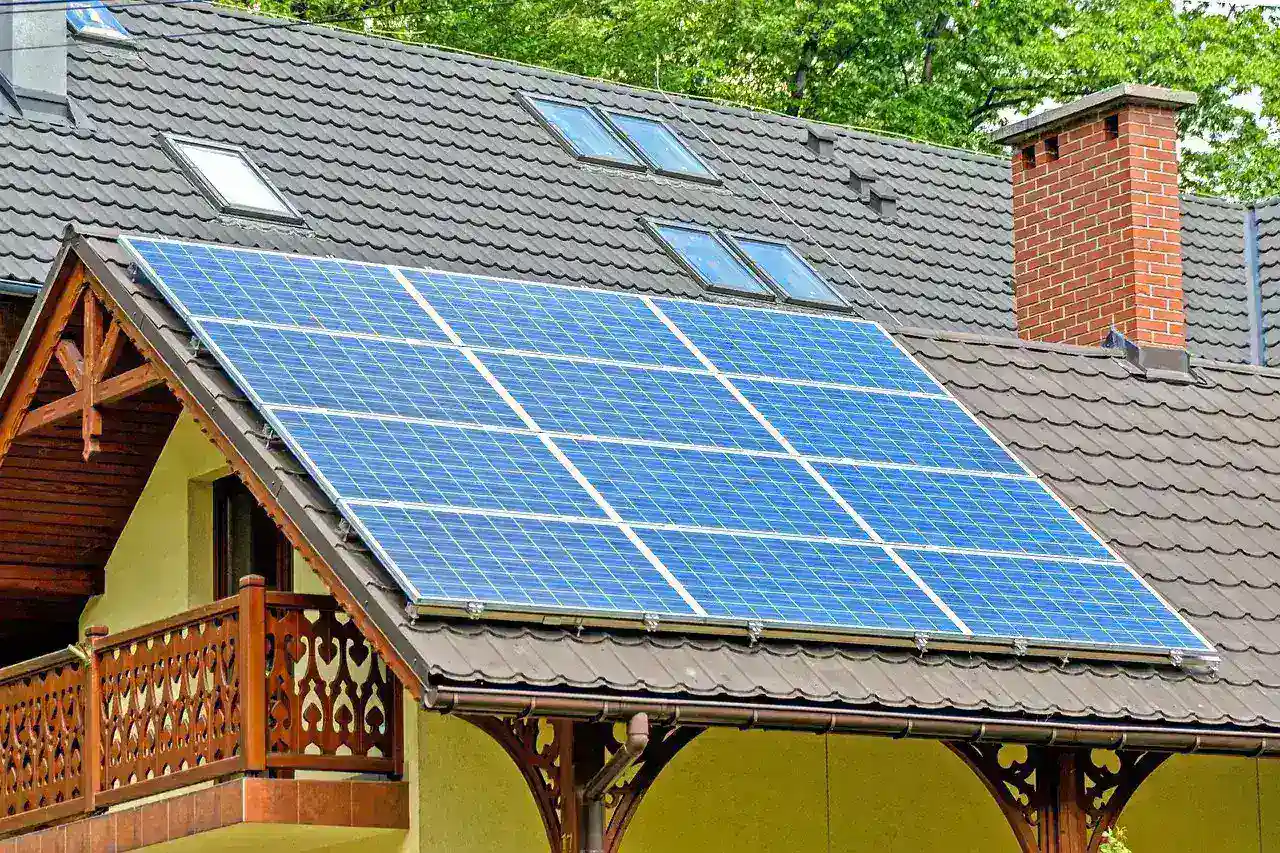As the world becomes more environmentally conscious, individuals and businesses alike are embracing eco-friendly technology to reduce their carbon footprint and live more sustainably. Whether it’s through energy-saving devices, renewable energy solutions, or smart home systems that optimize resource use, technology plays a vital role in promoting a greener lifestyle. In this post, we’ll explore some of the most impactful eco-friendly technologies that can help you live more sustainably and make a positive impact on the environment.
Solar Panels: Harnessing the Power of the Sun

One of the most popular and effective ways to go green is by using solar panels. These devices convert sunlight into electricity, reducing dependence on fossil fuels and lowering electricity bills. Solar energy is clean, renewable, and abundant, making it an ideal source of power for households and businesses looking to reduce their environmental impact.
Modern solar panels are highly efficient, affordable, and easy to install. With the right setup, solar panels can provide enough energy to power your home, and excess power can even be stored in solar batteries or sold back to the grid, further offsetting energy costs. Over time, investing in solar panels can significantly reduce your reliance on nonrenewable energy sources and help reduce greenhouse gas emissions.
Energy-Efficient Appliances: Reducing Wasteful Consumption
Energy-efficient appliances are designed to use less energy while providing the same level of performance. Whether it’s a refrigerator, washing machine, or air conditioner, modern eco-friendly appliances are built to consume less power and reduce your overall energy consumption.
Look for appliances that have an Energy Star label, which signifies that they meet strict energy efficiency guidelines set by the Environmental Protection Agency. These appliances use advanced technologies to minimize energy waste, such as better insulation, smarter temperature regulation, and more efficient motors. By replacing older, less efficient appliances with energy-saving models, you can cut down on your energy bills while contributing to a reduction in overall energy demand.
Electric Vehicles (EVs): Sustainable Transportation Solutions
Transportation is one of the largest contributors to carbon emissions worldwide. Electric vehicles (EVs) offer an eco-friendly alternative to traditional gas-powered cars. Unlike conventional vehicles, EVs run on electricity, producing zero tailpipe emissions and reducing your carbon footprint.
The technology behind EVs continues to improve, with longer battery life, faster charging times, and more affordable price points. Many governments offer incentives for purchasing EVs, such as tax credits or rebates, making them more accessible to the general public. By switching to an electric vehicle, you can reduce your personal contribution to air pollution, save on fuel costs, and take part in the transition to a more sustainable transportation system.
Smart home devices have become increasingly popular for their ability to automate and optimize resource consumption. From smart thermostats that regulate heating and cooling to energy-monitoring devices that track electricity usage, these technologies help you manage energy more efficiently.
For example, smart thermostats like Nest and Ecobee learn your habits and adjust the temperature automatically based on your schedule, ensuring your heating and cooling systems are only running when needed. Similarly, smart lighting systems, such as Philips Hue, allow you to control your lights remotely and set schedules to minimize energy waste. By using smart home technologies, you can reduce your energy consumption without sacrificing comfort.
Sustainable Gadgets: Eco-Friendly Alternatives
There’s also a growing market for eco-friendly gadgets that help reduce waste and encourage sustainable practices in everyday life. Solar-powered chargers, reusable smart water bottles, and sustainable phone cases are just a few examples of products that make it easier to reduce your environmental footprint.
Solar-powered chargers, for instance, use renewable energy to charge your devices, reducing the need for electricity from the grid. Reusable smart water bottles track your hydration habits and remind you to drink more water, while also helping reduce plastic waste. These small changes can add up over time, helping you adopt a more sustainable lifestyle without compromising on convenience.
Green Tech in Agriculture: Sustainable Farming Practices
Sustainable agriculture is another area where technology is making a significant impact. Innovations in farming, such as precision agriculture and vertical farming, are helping reduce the environmental impact of food production.
Precision agriculture uses sensors, GPS, and data analytics to optimize crop yields while reducing water and chemical use. This minimizes waste and maximizes efficiency, leading to more sustainable farming practices. Meanwhile, vertical farming allows crops to be grown indoors in stacked layers, using less land and water than traditional farming methods. These technologies are helping to feed the world while conserving natural resources.
Energy Storage: Powering a Sustainable Future

As renewable energy sources like wind and solar become more widespread, energy storage solutions are crucial for ensuring a consistent power supply. Batteries, such as the Tesla Powerwall, store excess energy generated by solar panels for use when the sun isn’t shining, providing homeowners with a reliable, sustainable energy source.
These storage systems allow you to take full advantage of renewable energy, reduce reliance on the grid, and even lower your energy bills. With advancements in energy storage technology, it’s becoming easier for individuals and businesses to become more self-sufficient and reduce their environmental impact.
Eco-friendly technologies are playing a crucial role in creating a more sustainable future. From renewable energy solutions like solar panels and electric vehicles to smart home devices that optimize energy consumption, there are countless ways to reduce your carbon footprint and live more sustainably. By embracing these technologies, we can all make a positive impact on the environment while enjoying the benefits of greater efficiency, lower costs, and improved convenience. As technology continues to evolve, the potential for eco-friendly innovations will only grow, making it easier for individuals and businesses to adopt sustainable practices and contribute to a greener planet.
